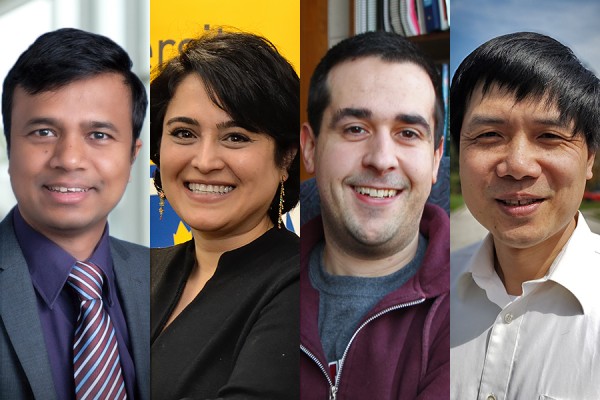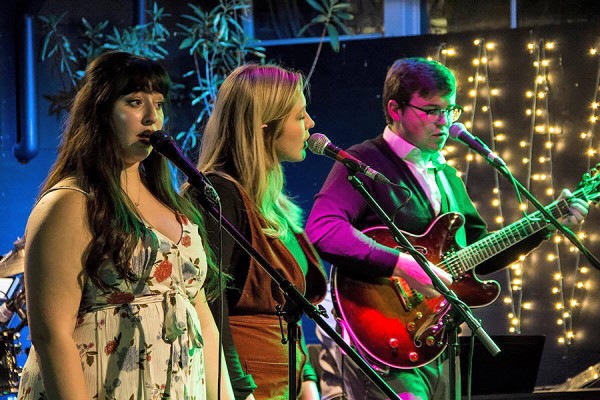 Professors Jalal Ahamed, Mitra Mirhassani, Simon Rondeau-Gagné, and Yufeng Tong have received $50,000 from the Natural Sciences and Engineering Research Council to design a portable device to test for COVID-19, replacing the need for samples to be sent to a laboratory for analysis.
Professors Jalal Ahamed, Mitra Mirhassani, Simon Rondeau-Gagné, and Yufeng Tong have received $50,000 from the Natural Sciences and Engineering Research Council to design a portable device to test for COVID-19, replacing the need for samples to be sent to a laboratory for analysis.
UWindsor researchers are trying to revolutionize the testing process for COVID-19 by developing a portable device that is quicker, cheaper, and more accurate than current laboratory tests.
Dubbed Lab-on-a-Chip, the device would allow healthcare workers to test and diagnose patients on the spot, said Jalal Ahamed, one of four UWindsor professors behind the research.
“Accurate, rapid, on-site, and point-of-care detection has paramount importance not only in Canada but also worldwide for early intervention and infection control,” Dr. Ahamed said.
“Development of such a device will be highly impactful in our fight against COVID-19.”
Currently, testing is performed in sophisticated laboratory settings. Patients are swabbed and the samples are sent away to labs, with the turnaround time for results usually measured in days. Lab-on-a-Chip devices could give results in minutes.
Ahamed, who is working on the project with fellow engineering professor Mitra Mirhassani, and chemistry professors Yufeng Tong and Simon Rondeau-Gagné, has been awarded a $50,000 grant from Canada’s Natural Sciences and Engineering Research Council. It is the third COVID-related project at UWindsor NSERC has funded at the maximum amount available under a special $15 million fund established to address the pandemic.
The research team has partnered with APAG Elektronik Corp., a Swiss firm with a Windsor production site that manufactures electronics and lighting components.
“Our device is based on detecting the electrical signal produced when a viral protein binds with the virus receptor of human cells called ACE2, short for human angiotensin converting enzyme-2 protein,” Dr. Tong explained.
The company will lend its electronic manufacturing and distribution know-how to the project, building on the UWindsor researchers’ expertise in developing sensors.
“Until a vaccine is developed, our ability to reduce the transmission of COVID-19 is directly dependent on the capacity to rapidly test, diagnose the virus, and place those infected in isolation,” Dr. Mirhassani said.
“With this new device in our hands, our response to this crisis will be significantly improved, helping healthcare providers fight the virus and reduce its spread.”
NSERC announced funding for Lab-on-a-Chip before the deadline for applications had passed. The federal agency is trying to respond rapidly to the pandemic by funding projects as it receives worthy applications.
Dr. Rondeau-Gagné in April secured $10,000 in start-up funding for the project from the office of UWindsor’s Vice-President of Research and Innovation and the WE-Spark Institute, a research partnership involving the University of Windsor, Windsor Regional Hospital, Hotel-Dieu Grace Healthcare, and St. Clair College.
—Sarah Sacheli



